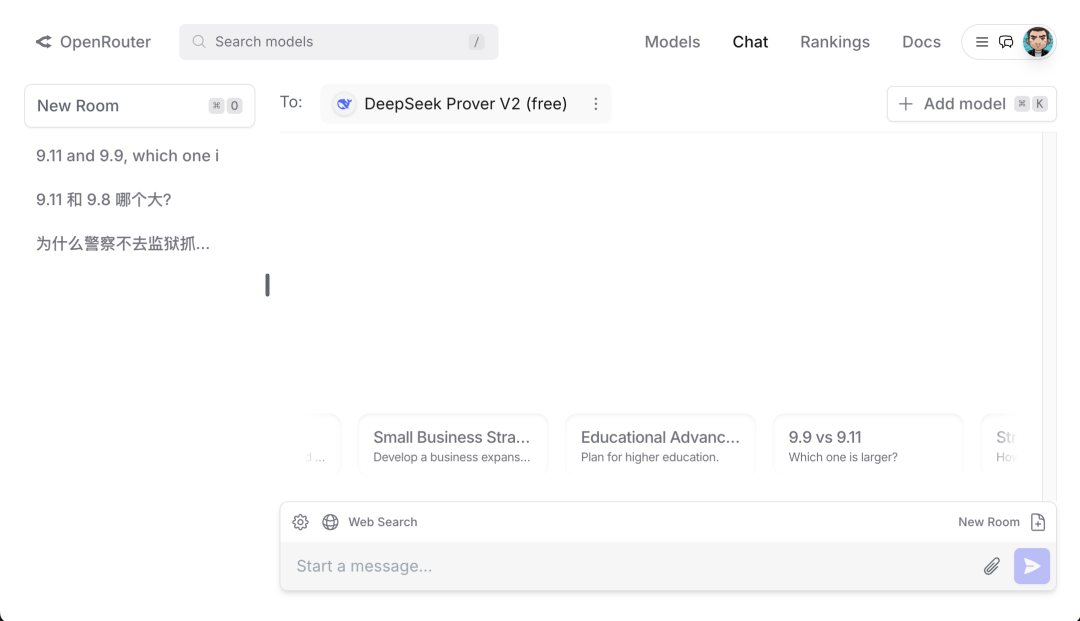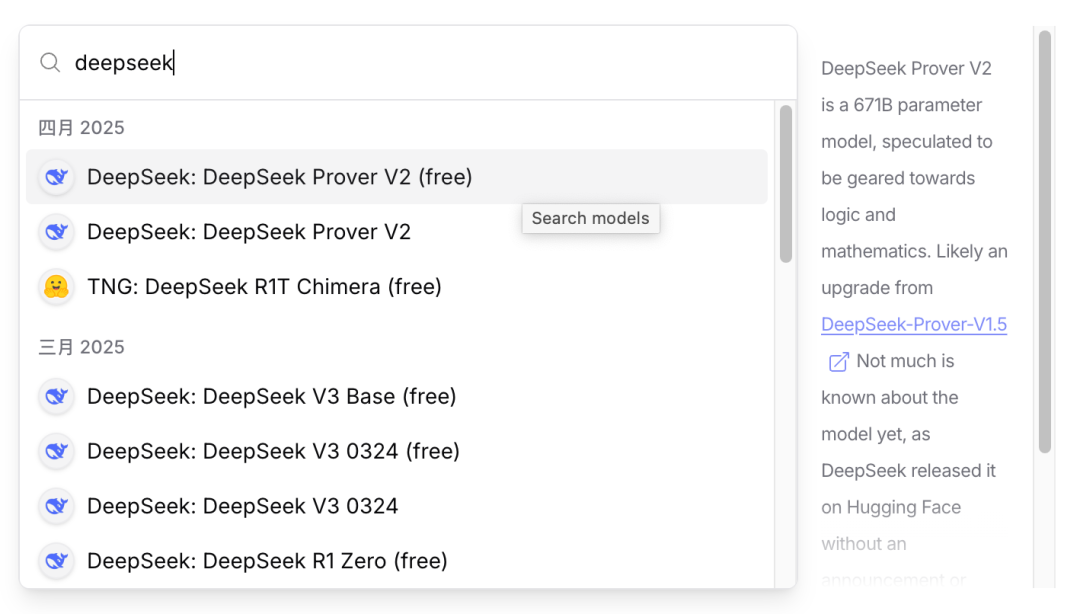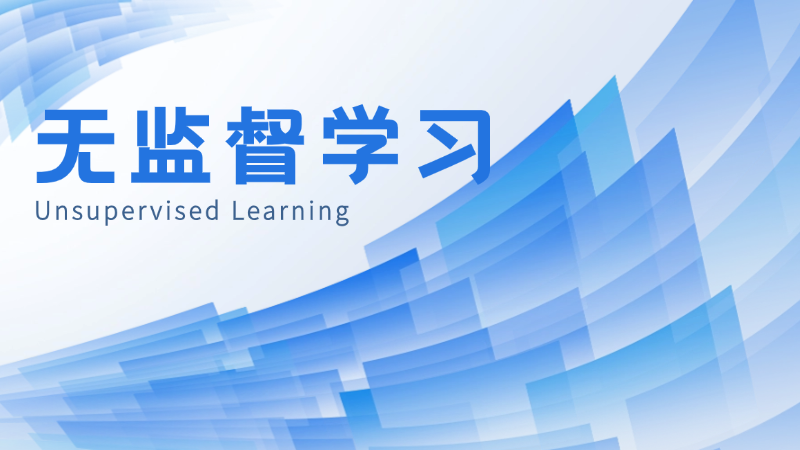OpenRouter Adjusts Free Credits and Rate Limits
OpenRouter The platform, which aggregates many of the world's leading APIs for large language models, has recently made significant changes to its free use policy and rate limiting. The platform is recognized for its ease of use - providing a single API Key to call a number of APIs including DeepSeek The following are examples of the types of activities that have been undertaken in the past, Claude , Gemini , Grok With a wide range of models, including those from China, and support for direct access by domestic users and payment by Alipay and WeChat, the company has attracted a large number of developers and AI enthusiasts. However, the latest policy changes have had a direct impact on different user groups.
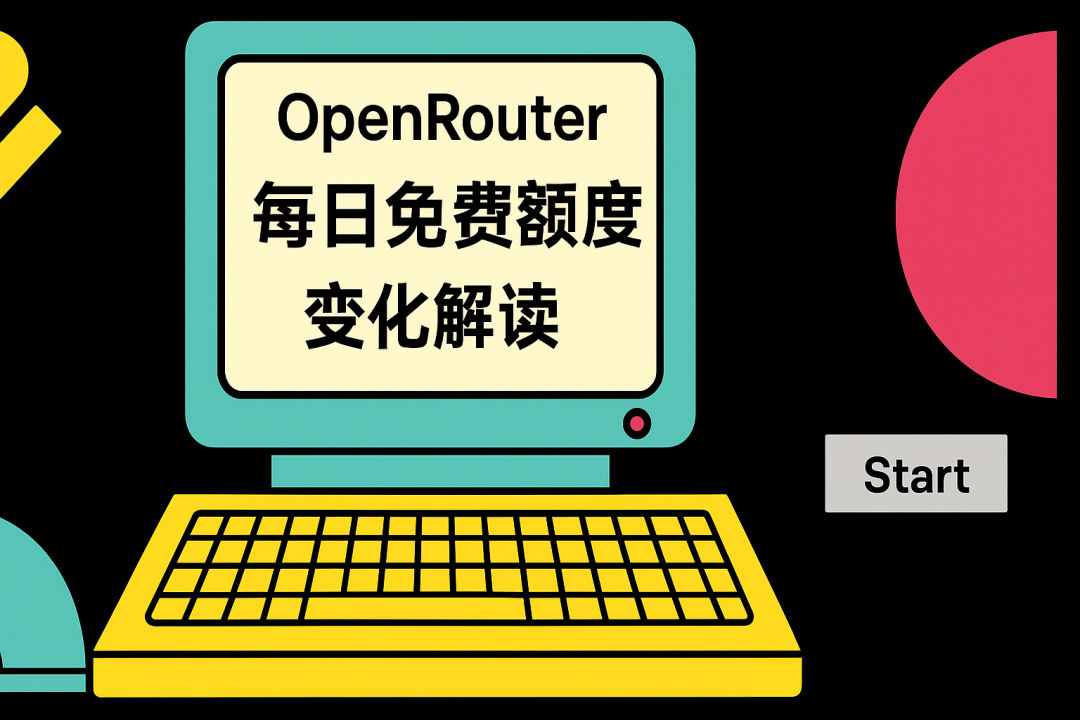
The tweaks center on changes to free credits and rate limits, reflecting the fact that platforms may be looking for a more sustainable operating model with some differentiation in user mix.
(Note: For first-time OpenRouter users, subsequent articles will provide detailed guides from registration and recharge to API calls.)
I. Hierarchical adjustment of free call credits
Originally, all registered users were generally entitled to 200 free model calls per day. Recently, OpenRouter has adjusted this to differentiate between users based on whether or not they have topped up their account:
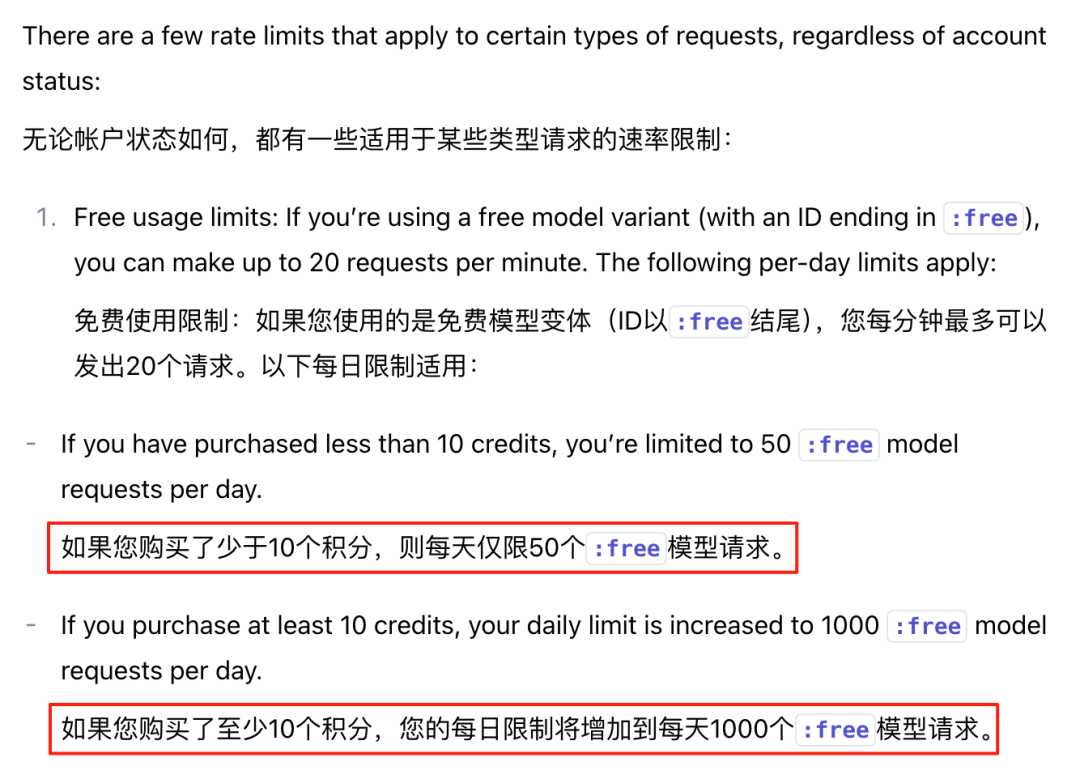
Official document on restrictions: https://openrouter.ai/docs/api-reference/limits
The policy adjustments are detailed below:
- Unrecharged users (free users). Free calls per day from 200pass down to a lower unitto 50 calls. This change significantly raises the threshold for free use, possibly in response to the cost pressures associated with large numbers of free calls.
- Recharged Users (with a previous account balance of more than $10). Free calls per day from 200adjust upwardsto 1,000 times. This is a significant increase in free credits for paying users instead, boosting the value of paid accounts.
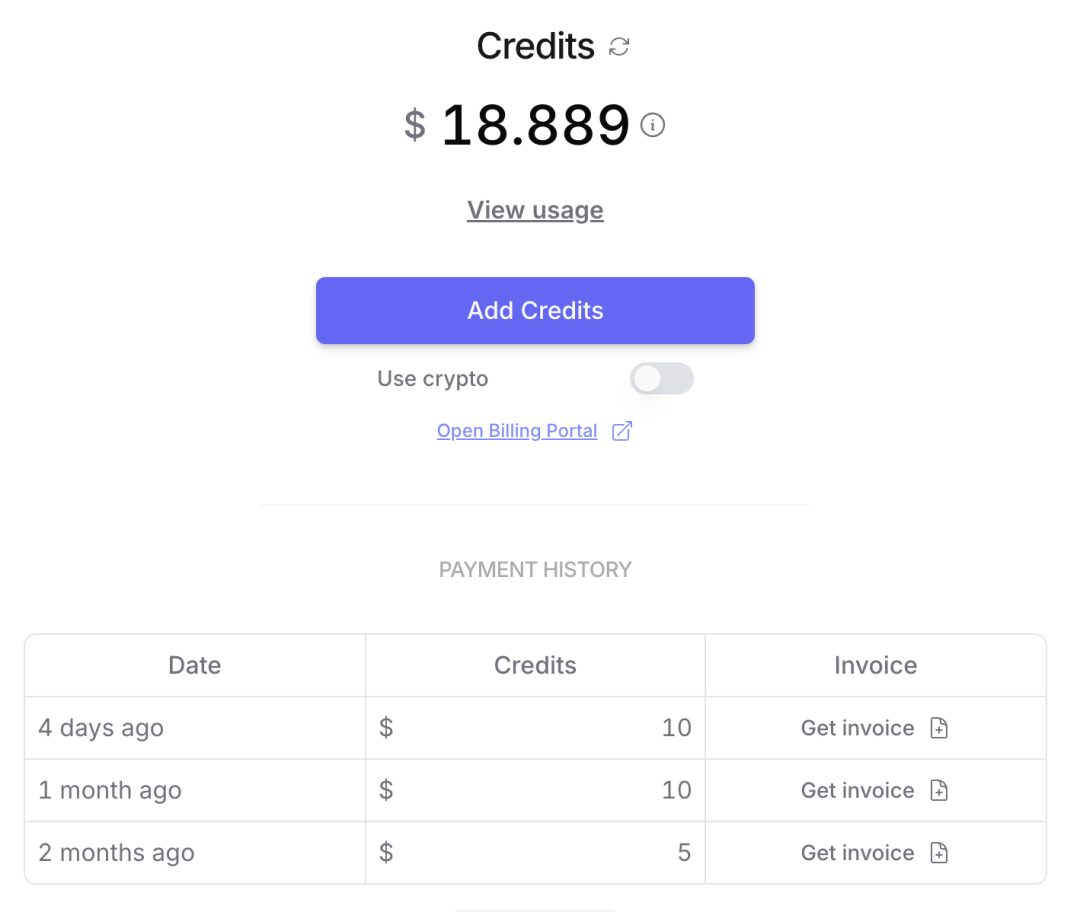
This layering strategy shows that OpenRouter intends to encourage users to make small top-ups in order to filter out the more active or willing to pay user groups and provide them with greater benefits, while controlling the resource consumption caused by purely free usage.
II. Rate limitation linked to account balance
In addition to the number of invocations, request rate limiting has also changed. Rate limiting is usually measured by the following metrics:
- RPS (Requests Per Second): Number of requests per second, a measure of concurrent processing power.
- RPM (Requests Per Minute): Number of requests per minute.
- RPD (Requests Per Day): number of requests per day, related to the free/paid total.
be directed againstFree Modelsof the call, the current rate limit is:
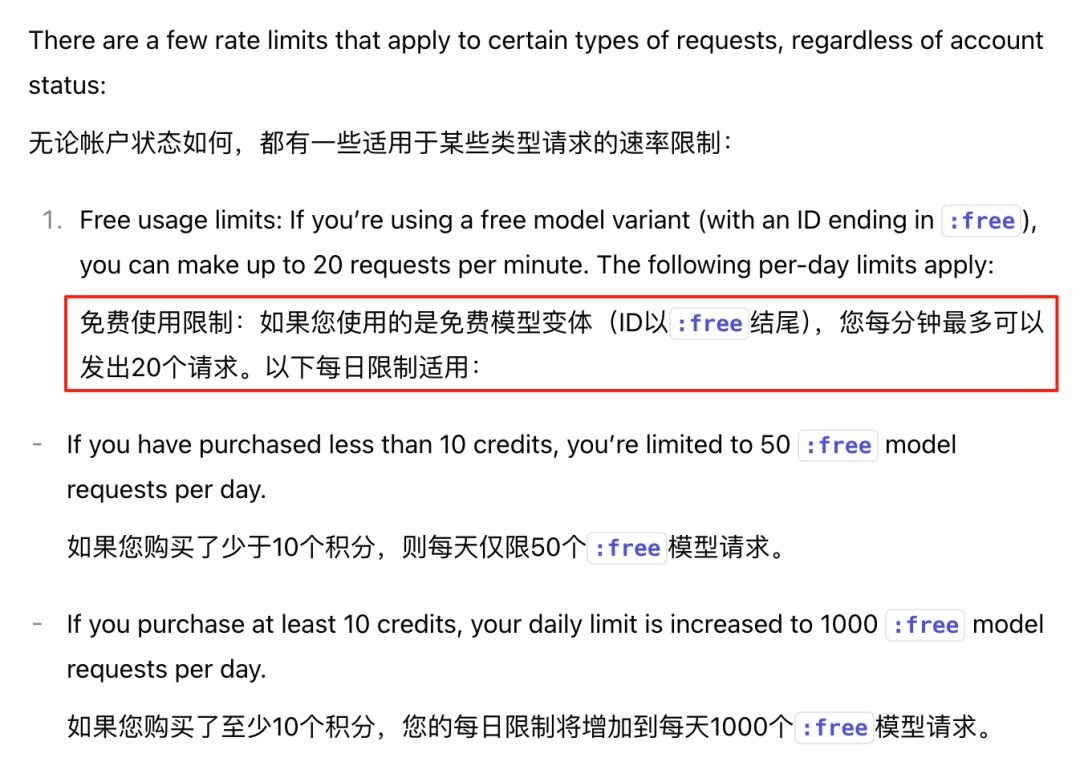
- Rate limiting. Up to 20 RPM (20 requests per minute).
- Total Limitations. 50 times per day (for non-reloaded users) or 1000 times per day (for reloaded users).
with regards topayment modelof the call, and its rate limitation (specifically RPS, or concurrency capacity) is directly related to the account balance:
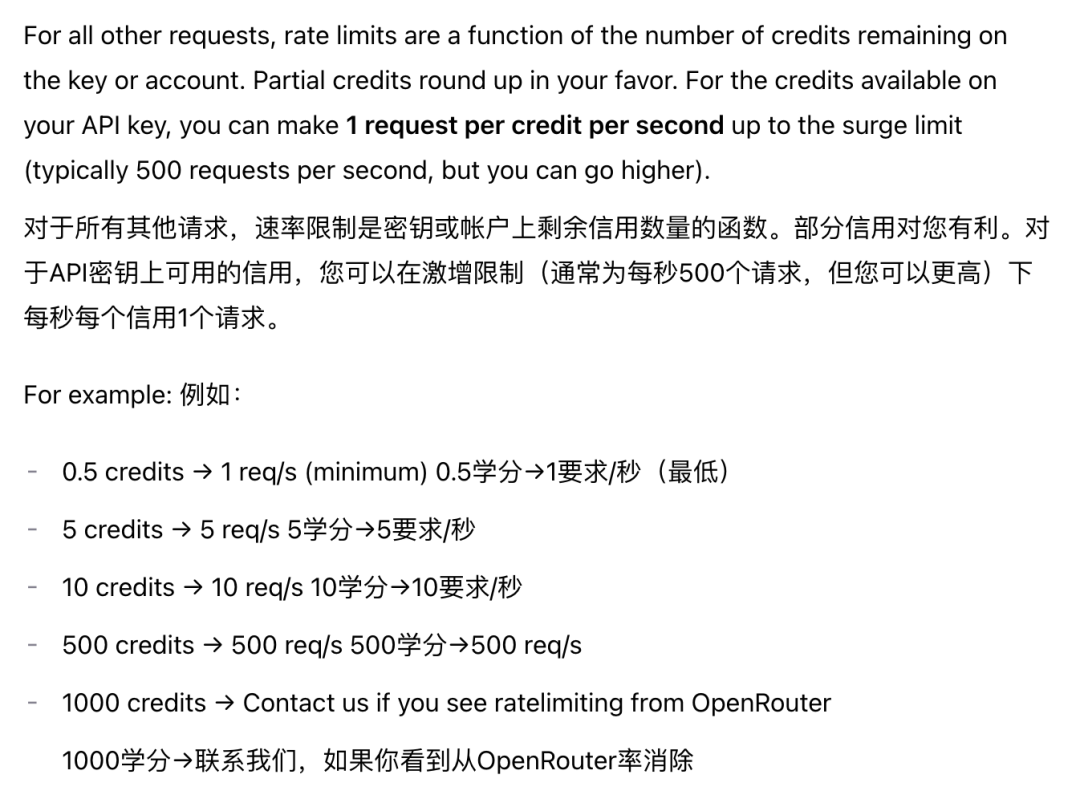
The core of the rule is:The higher the account balance, the higher the number of concurrent requests per second ( RPS ) allowed.
- Specifically, if there is a balance of N dollars in the account, the RPS is N. The RPS is the amount of money in the account.
- The minimum concurrency is 1 RPS (even if the balance is less than $1, e.g., $0.50, it is counted as 1 RPS).
- The maximum concurrency is 500 RPS by default (even if the balance is more than $500, e.g. $1000, the RPS will still be 500, contact customer service for higher requirements).
A key caveat is that RPS decreases dynamically as account balances are depleted. This is critical for applications using OpenRouter in production environments, where it is necessary to ensure that account balances are sufficient to maintain the concurrent processing power required by the business and to avoid service impacts due to reduced RPS as a result of falling balances.
If the free credit is exhausted or the account balance is insufficient (becomes negative), the API request will return 402 Error:402: Your account or API key has insufficient credits. Add more credits and retry the request.
(402: Your account or API key does not have enough credits. Please add more credits and try again.)
If the request frequency exceeds the rate limit, it will return the 429 Error:429: Rate limit exceeded. Please try again later.
(429: Rate limit exceeded. Please try again later.)
III. User Strategy Recommendations
In the face of OpenRouter's policy adjustments, different types of users can consider the following strategies:
1. Heavy users/developers.
- Recommended top-up. Charge more than $10 and you'll get 1,000 free calls per day, making it significantly more cost-effective. The 50 calls per day credit is great for development testing, using AI-assisted programming tools like Cursor , Cline Agent mode or MCP Scenarios such as (tools) are often inadequate and are more likely to trigger the 20 RPM rate limit.
- Balance of Concern. For production applications, it is important to monitor account balances to ensure that you continue to have an adequate RPS quota to meet the concurrent demands of your business.
2. Light users/experiencers.
- Assessment of needs. If you use it infrequently, mainly for simple chats or occasional feature experiences, the 50 free daily credits may be sufficient for basic needs.
- Utilizing the platform's chat interface. The OpenRouter official website offers a direct chat feature. Users can select the free model marked (free) to experience it without consuming paid credits or API calls.

By clicking on the upper right corner of theAdd modelYou can search for and add free models, such as the newly released DeepSeek Prover V2 (free).
Many of the advanced big models are available on OpenRouter in free versions for users to experience, but it is worth noting that OpenAI's GPT family of models does not offer a free option. - Multi-account strategy (not recommended). Although technically feasible, it is cumbersome to circumvent the restrictions by registering multiple accounts, requiring frequent switching of API keys and inconvenient management.
3. Users who need easy access to specific models.
- For those who do not have direct access to certain models (e.g. ChatGPT For users of the official API (Claude , Gemini ), OpenRouter still provides a relatively easy access, especially if domestic payment methods are supported.
IV. Frequently Asked Questions (FAQ)
1. How can I check my account balance and remaining free credit?
After logging in to OpenRouter, click the Settings icon (small cogwheel) in the upper right corner and select Credits menu, or go directly to the https://openrouter.ai/settings/credits Page view.
2. Do account credits expire?
According to the official description, the platform reserves the right to expire Credits that have not been used after one year of recharging. This policy may be aimed at preventing users from reloading just to get a higher daily free credit (1,000 times) but never actually using the paid API.
3. Can unused balances be refunded?
Officially, the balance of a top-up is usually non-refundable.
4. What payment methods are supported?
OpenRouter supports credit card, Alipay, WeChat and cryptocurrency payments.
5. How do I top up?
interviews https://openrouter.ai/credits Page:
- Click the "Add Credits" button.
- Enter the amount to be recharged in the Amount field (in U.S. dollars).
- If you have a credit card, you can click Purchase to complete the payment.
- If you choose to pay by Alipay or WeChat, please refer to the related tutorial link for operation.
To summarize, OpenRouter's adjustment, by distinguishing between free and paid users and introducing a dynamic rate limit linked to the balance, limits the scale of pure free use on the one hand, and improves the rights and interests of paid users and platform stickiness on the other. This reflects the evolution of a common strategy of AI model aggregation platforms in balancing user growth, cost control and commercialization. Users need to adapt to the new rule system according to their own usage patterns and needs.
© Copyright notes
Article copyright AI Sharing Circle All, please do not reproduce without permission.
Related posts

No comments...

